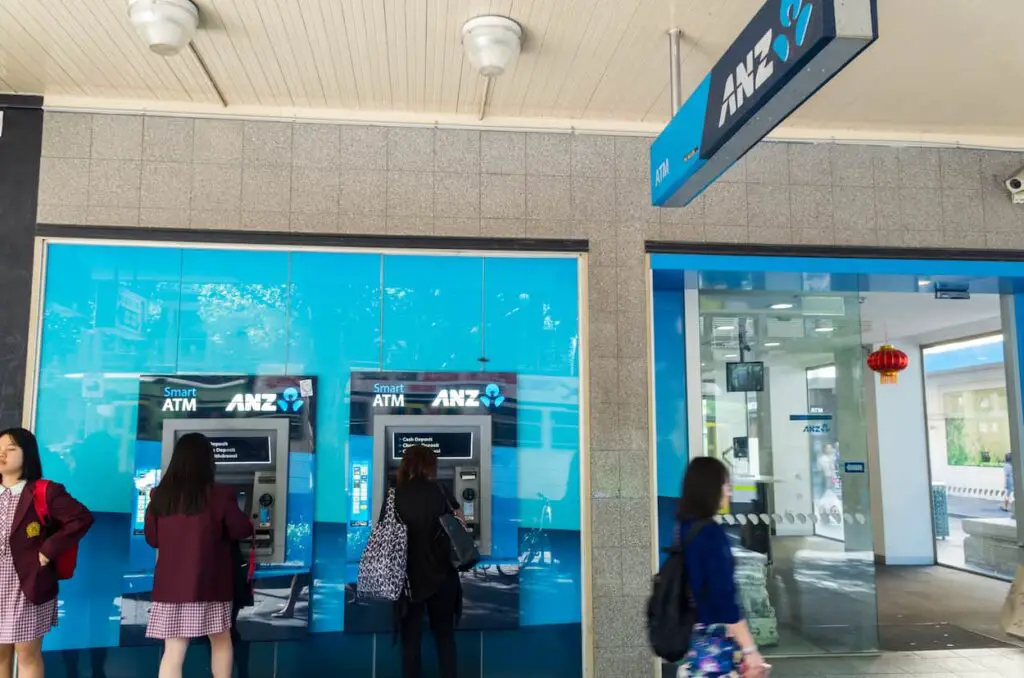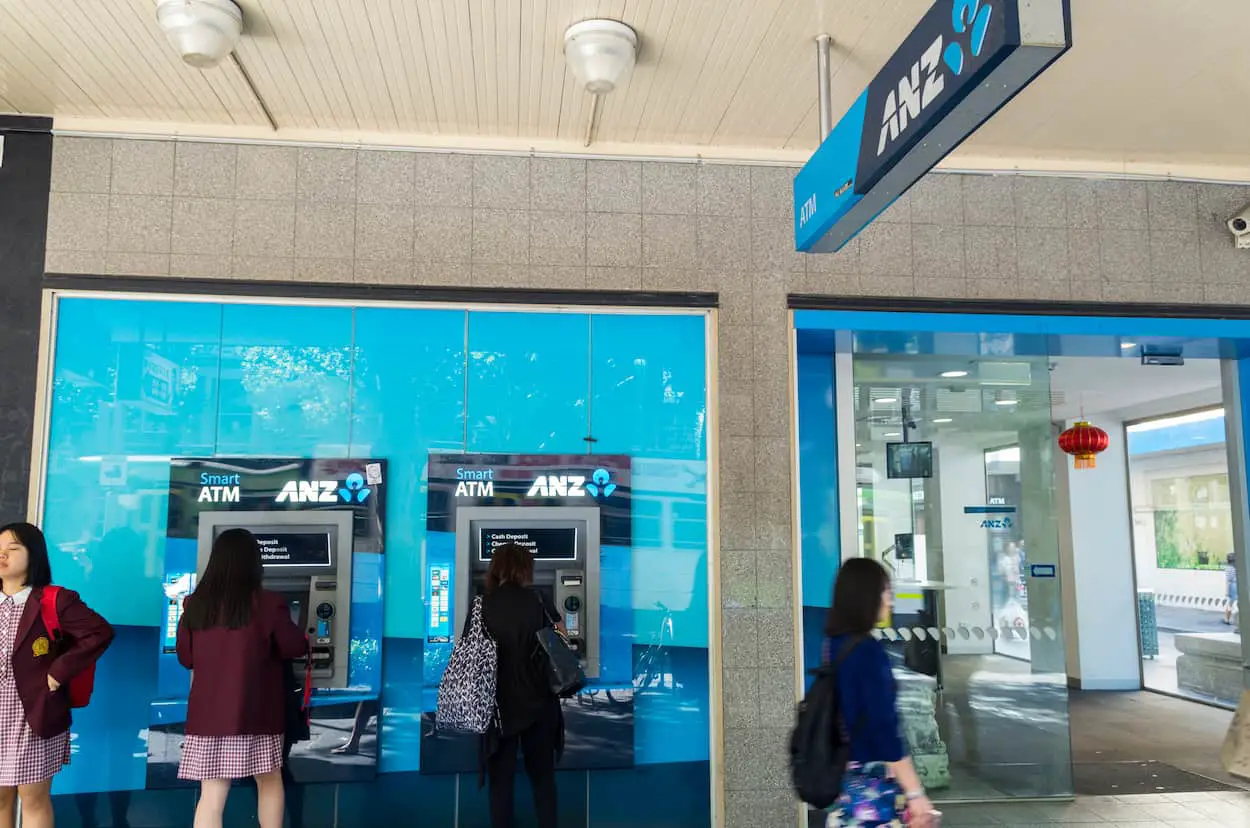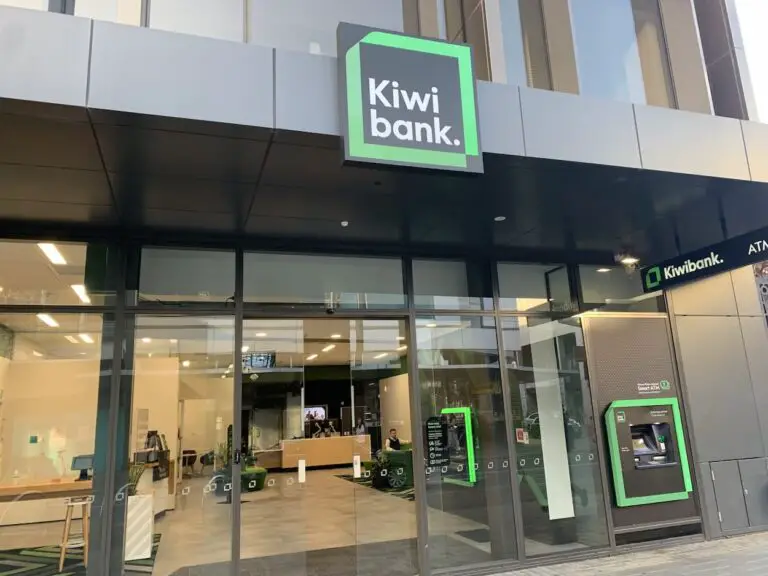Best Bank Accounts in New Zealand for International Students in 2024

Everyone should have a bank account that is fully functioning in New Zealand. As an international student, you will need to pay for several things on a regular basis while studying in New Zealand; hence a local bank account is very helpful. Several Kiwi banks offer special deals for local and international students, I list some of them in this article.
Here is the list of the best bank accounts in New Zealand for international students.
- TSB
- ANZ
- Westpac
- ASB
- Co-operative bank
- BNZ
Lately, I have opened a bank account with TSB as a student, and I couldn’t be more happier with them. So, to save you from exhausting and struggling days of effortless effort, I explain how to open a bank account in New Zealand for international students, which banks are the best, and what you need to know. Continue reading to save yourself from a horrific rollercoaster ride!
Also read: Best banks in New Zealand.
Can an international student open a bank account in New Zealand?

The simple answer is yes, international students can open a bank account in New Zealand, and they are fully eligible to do so.
The banks in New Zealand offer a range of accounts to people, domestic or international. One of those options is the student bank account which is specifically designed for participants in college programs.
Most banks in New Zealand also have another version of the student bank account called the international bank account, particularly for international students.
You can think of a student bank account as an upgraded version of the daily usage current account. But this one comes with added features and international-student-specific perks.
Also, you should consider opening an account in Wise, especially if you hold foreign currency and spend NZ$ in New Zealand. With Wise, you get a physical Mastercard or Visa card that you can use in New Zealand and other countries almost at no cost. As an international student, I have been only using my Wise card in New Zealand and won’t exchange it for anything else.
The main point to consider when opening a bank account in New Zealand is having a registered address or residency permit in the country. Assuming you are an international student, you can mention your current address or the address of your institution’s name as proof. Besides, you must present confirmation of enrollment in this university.
Before getting into the details of the best bank accounts, what they offer, and the process of how to open a bank account, down below are some things to keep in mind.
1) Keeping check of interest-free overdrafts
Interest-free overdraft is a benefit added to student bank accounts that allows you to take out more money than you have in the bank account without applying interest on it. Meaning you are lending money from the bank with no fees to pay in return.
It’s a good way to have some security in difficult times when the balance is low. But the thing to keep in mind is that you have to pay this money back after you graduate.
Thus, as soon as you are done being a student, you must pay interest fees, so use your interest-free overdraft wisely.
2) Having an IRD number
The next thing that would be helpful is getting an IRD number (Inland Revenue Department number). An IRD number is a crucial part of the taxing processes in the banking system of New Zealand. However, it’s not necessary for opening a bank account in New Zealand.
So, as soon as you open a bank account, you can get an IRD number to have your interests taxed. Interests occur when you opt for a saving account. You also will need an IRD number when getting a job in New Zealand, so the employer can pay taxes on your behalf.
3) The closeness of your bank
You need to consider whether the bank has branches in the proximity. Every time you use an ATM of a different bank from your own, you will be charged some additional fees. However, nowadays, cash is barely used in New Zealand, so that might be less of an issue.
Best banks for students in New Zealand
1. TSB
TSB is a Kiwi-owned bank and a perfect option for students, national or international. They have a dedicated account which is called Student First Package YET, international students who aren’t New Zealand residents or citizens can’t open a special student account. However, TSB offers other free daily accounts, such as Connect Plus, which is available to everyone. Here are more details on it:
| Account | Free |
| Debit Mastercard | Free |
| Withdrawals | Free |
| Deposits | Free |
Features included:
- Use ATMs of most of New Zealand’s banks for free
- Free, easy, and 24/7 accessible online banking services
To open an account, you need to provide:
- Confirmation of your address
- Student visa
- Passport
- Enrollment letter
2. ANZ

ANZ Bank, also known as Australia and New Zealand Banking Group Limited, is one of the greatest international banking systems in both countries. ANZ is known for having a great digital platform that is accessible at all hours.
For international students, the ANZ savings account is an ideal option, as the more you deposit, the more you earn.
Besides that, another option is the ANZ Plus, an everyday modern transaction account with no monthly fees.
ANZ offers:
- No monthly account fees on the majority of account types
- Digital banking app
- No transaction fees when withdrawing money across major banks in New Zealand
- Earning higher interest rates in saving accounts: earn 4.25% p.a. interest on balances under NZ$250,000.
- For international students, international ATM fees for withdrawal at any ANZ ATM range from free to a maximum of NZ$5 only.
- 12 months credit card fee waiver (credit card annual fees start at $35/year)
*Although ANZ is the largest bank in New Zealand, I wouldn’t recommend opening an account there, if you have other options. In my case, it took over one week for them to respond to my application.
3. Westpac
Westpac is the best option for international students struggling to exchange their currency for New Zealand dollars.
Westpac has a specially designed international student account that allows you to keep your cash in your home currency.
To qualify as an applicant for the account, the requirements are to provide proof of student visa, enrollment letter, and attend a Westpac-authorised tertiary institution.
The following benefits are included in this bank account:
- Fee-free account
- Optional foreign currency account
- Foreign exchange of an outward payment or account transaction is discounted at 25% on Westpac’s foreign exchange margin.
*When I went to Westpac in order to make an appointment to open an account as a student, they were booked at least a month ahead. Hence, the waiting time would have been over one month.
4. ASB
ASB is yet another great bank in New Zealand, but what makes it unique is how popular it is. Eliminating monthly and self-service transaction fees from all standard accounts has proven to increase the demand for this bank.
ASB has a tertiary student package that is an all-in-one bundle for local and international students.
From no base or transaction fees to multiple ways of paying and a 24/7 efficient mobile banking app — could you ask for more?
- Free account, a free debit card, a free credit card, and free fries when paying with an ASB Visa Debit card.
- NZ$1,000 interest-free overdraft for first-year students and NZ$2,000 for second-year and higher students.
- Instant transfers/ payments
5. Co-operative Bank
Co-operative Bank is one of the most successful and oldest banks with a history of 95 years with their clients. It has a traditional and easy banking system accessible to customers of all ages.
Features included in Co-operative Bank services are:
- 4.30% p.a. on deposits of NZ$4,000 monthly
- Flexible use of other ATMs for withdrawal and transactions
- No account fees
- Limit of NZ$1,000 for interest-free overdraft
- Interest rates of personal loans at 6.99 – 17.75% p.a.
6. BNZ
The Bank of New Zealand is a good option for people of all ages, from all backgrounds, and in all fields.
This bank has a straightforward process of activating and running an account without paperwork, excellent customer service, and a great mobile app.
International students enjoy the following perks:
- No monthly account fee
- Allows unlimited transactions
- Unlimited free withdrawals
- Up to NZ$1,000 interest-free overdraft for first-year students, NZ$1,500 for second-year students, and NZ$2,000 for subsequent-year students
- Earn 3.95% interest p.a. on every dollar in your account
- Services and customer support in English as means of communication
7. Wise
Although Wise is technically not a back, their accounts are more beneficial, functional, and affordable than traditional New Zealand bank offer.
As an international, you can hold funds in up to 55 currencies and spend money with a Wise card at no cost! If you pay in another currency, Wise charges only a small currency conversion fee ranging from 0,3% to 0,5%. It’s significantly less than NZ banks charge!
| Bank | Foreign currency fee on payments in foreign currency |
|---|---|
| BNZ | 2.25% of the transaction |
| Kiwibank | 1.85% of the amount converted |
| ANZ | 1.3% of the amount |
| Westpac | 1.95% of the transaction amount |
8. Revolut
Revolut provides similar to Wise services, including free international bank account, free money transfers, zero fees on foreign transactions, and much more. It’s a perfect option if you hold foreign currency (which is typical for international students), spend money overseas, or travel.
That said, you can also store NZ$ and spend in New Zealand dollars at no cost.
Overview of the standard account with Revolut:
- Free multicurrency, international bank account available in 5 currencies
- You can hold NZD, AUD, GBP, EUR and USD
- Free debit card – Visa or Mastercard
- Free international transfers 24/7 (markup on a weekend 1%)
- Free multicurrency payments (up to NZ$2,000 per month)
- Lower currency conversion fees – 0.50% after free NZ$2,000
- Mid-market exchange rate
- Up to five free withdrawals per month (up to NZ$350)
- Easy instant top-up
To open an account with Revolut, you will need a New Zealand ID, such as your student visa and foreign passport, and the confirmation of the address.
How to open a bank account in New Zealand as an international student?
If you are enrolled at a university in New Zealand as an international student, then one thing is for sure – you need a local bank account. You can’t deny it!
From your fees to bills, rent, transport, and necessities, you can’t manage and save all that if you have cash in your hands at all times. In fact, cash in New Zealand is pretty useless, and some places accept only cards (EFTPOS).
If you are looking to open a bank account in New Zealand as an international student and are unsure where to start, continue reading.
First, you need to know the types of accounts available in New Zealand. There is the usual, everyday-use current account, a savings account, a student bank account, an international student bank account, and packages that include a two-in-one option.
The process for opening a bank account is a relatively simple one. The following steps are to be followed:
- Browse the multiple banks there are in New Zealand and the options they have to offer.
- Check the website for online applications and submitting forms.
- Make an appointment in the bank where you want to open an account (don’t show up without an appointment!).
- Lastly, visit the bank in person to fulfill any remaining requirements and submit scanned documents.
The requirements for opening a bank in New Zealand as an international student are:
- A valid passport
- Proof of student visa
- Enrollment letter
- Proof of address e.g. rental agreement
- Inland Revenue Department (IRD) number
- Tax Identification Number (TIN)
After submitting your application form and required documents, you will receive an account number. You may pick up your ATM card from the branch yourself or have the card delivered to your residential address.
To start your deposits and withdrawals, generate your PIN security number at the branch, and you’re good to go. It’s as easy and as simple as that!
This post contains affiliate links. The affiliate link means we may earn an advertising/referral fee if you make a purchase through our link, without extra cost to you. It helps to keep this blog afloat. Thanks for your support.




![Using Wise Card in New Zealand: [2024 Guide]](https://simplenewzealand.com/wp-content/uploads/2023/05/IMG_3227-min-2-1-768x576.jpg)
![25 Best Side Hustles Ideas in New Zealand [2024]](https://simplenewzealand.com/wp-content/uploads/2023/07/wallpaperflare.com_wallpaper-1-1-768x499.jpg)

